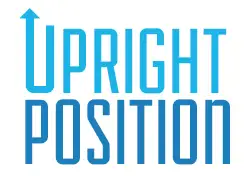
There is a restaurant near my office where you can get a free lunch. It is not a soup kitchen. You can order a latte or an Autumn Squash Soup or a Mediterranean Veggie Sandwich, eat the food, and leave without paying a cent. You will not get arrested.
The place is Panera Cares, a pay-what-you-want community restaurant in downtown Boston. There are Panera Cares locations all across the country, just as there are pay-what-you-want or pay-what-you-can restaurants and cafes in destinations around the world. If you travel, you’ve likely come across one, in cities from Denver to Vienna.
The pay-what-you-want pricing scheme is a radical trend that shifts the power to set prices onto the consumer. Like the fast-growing sharing economy, the model rests on personal responsibility and human connection. It’s largely peer pressure or an adherence to personal ethics that pushes patrons to pay fair prices. Even though it is entirely possible to order a meal and pay nothing at a place like Panera Cares, I do not recommend doing so. I probably don’t need to tell anyone that it’s bad to shortchange any kind of establishment if you have the means to pay for the services or goods you’re consuming.
Exactly how much money, then, should you give in a pay-as-you-wish situation? In a venue that allows customers to set their own prices, what’s the proper way to behave?
Most of these places seem to be restaurants, though the model applies to goods, services, or limited-time promotions. Radiohead’s In Rainbows album was originally for sale under a pay-what-you-want model. A hotel group in Paris offered pay-as-you-wish pricing for stays at some properties last August, for a very limited time. Boston’s Hub Theatre Company tells patrons to “pay what you can.” The list goes on. You’ll see this pricing model used by volunteer collectives, nonprofit groups, and for-profit companies. Your chosen rate of payment will likely hinge on the nature of the establishment. An organization’s raison d’etre will, naturally, affect patrons’ willingness to donate.
Panera Cares, run by the restaurant chain’s nonprofit arm, the Panera Bread Foundation, is arguably the most ubiquitous of the pay-as-you-wish spots, at least in the States. There are five U.S. locations. Patrons pay what they can afford; this egalitarian pricing model ensures that those without the cash to contribute the full suggested price can enjoy a Panera dinner in the same space and under the same terms as those with means. Whether you put a dime or 10 dollars into the restaurant’s donation bin (they also accept credit cards), you’re enjoying the same food and service as everyone else in the community.
I visited the Boston Panera Cares today. Just like at a standard Panera Bread store, the menu spanning the wall behind the cash registers lists a price next to each item. There’s a small “suggested donation” note above the amounts, but it’s not very obvious. I would assume that many people wander into the store and don’t even realize they’re not required to pay. According to the Panera Cares website, “60 percent of people leave the suggested donation, 15–20 percent leave more, and 15–20 percent leave less or nothing.” This allows the restaurants to make between 70 and 75 percent of the retail value of the food served at Panera Cares cafes. Panera Cares accepts donations on its website or at the store, and patrons who cannot pay are encouraged to volunteer an hour of work in exchange for a meal.
Obviously, a person of means who takes a free meal from Panera Cares is an ass. It’s a charity. But even at for-profit establishments, the same rules apply: Pony up suggested prices or bust, unless you are truly destitute. Sorry to suck the fun out of the pay-as-you-wish idea, but everyone, ideally, should pay market value for goods and services, whether or not the manager has the right to call the police after you leave.
The pay-as-you-wish scheme is a myth. No reasonable person desires to part with his money. You’re never really paying what you want. Most pay-as-you-wish places will have suggested donations posted, and so, outside of special circumstances, people should take heed. Those who have the ability to pay, yet choose not to, are guilty of violating the democratic ethos of the community in the manner of a criminal taking property without consent. You’re either taking advantage of an honor system, or you’re paying what you’re expected to pay and what’s appropriate for you to pay given your financial means. There’s still no such thing as a free lunch.
Do you agree? Is it unethical to take freebies at pay-as-you-wish spots?
You Might Also Like:
We hand-pick everything we recommend and select items through testing and reviews. Some products are sent to us free of charge with no incentive to offer a favorable review. We offer our unbiased opinions and do not accept compensation to review products. All items are in stock and prices are accurate at the time of publication. If you buy something through our links, we may earn a commission.
Related
Top Fares From
Today's Top Travel Deals
Brought to you by ShermansTravel
Greece: 9-Night Vacation, Incl. Meteora &...
Exoticca
 vacation
$2099+
vacation
$2099+
New Year Sale: Luxe, 9-Nt Alaska...
Oceania Cruises
 cruise
$3599+
cruise
$3599+
Ohio: Daily Car Rentals from Cincinnati
85OFF.com
 Car Rental
$19+
Car Rental
$19+



